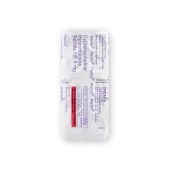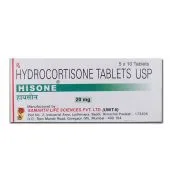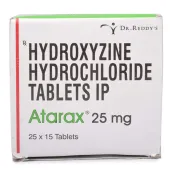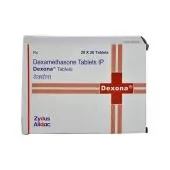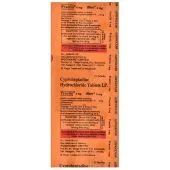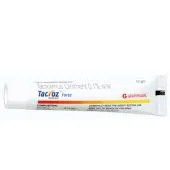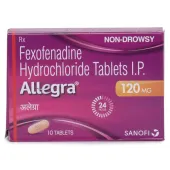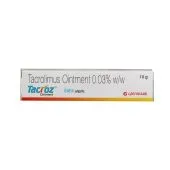Allergy

-
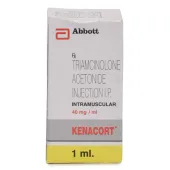
-

-
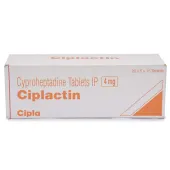
-
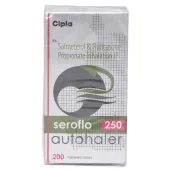 Seroflo Inhaler 25 Mcg + 250 Mcg Salmeterol + Fluticasone Propionate 1 Dose/s : $0.15As low as $20.16
Seroflo Inhaler 25 Mcg + 250 Mcg Salmeterol + Fluticasone Propionate 1 Dose/s : $0.15As low as $20.16 -
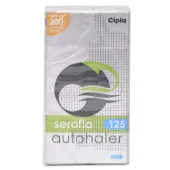 Seroflo Inhaler 25 Mcg + 125 Mcg Salmeterol + Fluticasone Propionate 1 Dose/s : $0.11As low as $14.40
Seroflo Inhaler 25 Mcg + 125 Mcg Salmeterol + Fluticasone Propionate 1 Dose/s : $0.11As low as $14.40 -
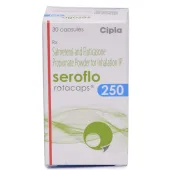 Seroflo Rotacaps 50 Mcg + 250 Mcg Salmeterol + Fluticasone Propionate 1 Capsule/s : $0.56As low as $18.72
Seroflo Rotacaps 50 Mcg + 250 Mcg Salmeterol + Fluticasone Propionate 1 Capsule/s : $0.56As low as $18.72 -
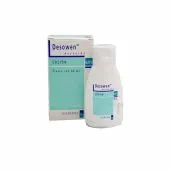
-
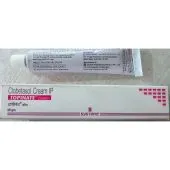
-

-
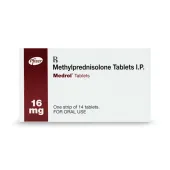
-
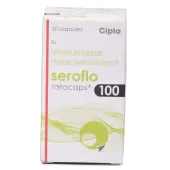 Seroflo Rotacaps 50 Mcg+100 Mcg Salmeterol + Fluticasone Propionate 1 Capsule/s : $0.26As low as $8.69
Seroflo Rotacaps 50 Mcg+100 Mcg Salmeterol + Fluticasone Propionate 1 Capsule/s : $0.26As low as $8.69 -
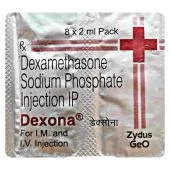
Allergy
What are allergies?
Allergies are among the most common chronic conditions worldwide. Allergy symptoms range from making you miserable to putting you at risk for life-threatening reactions.
According to the leading experts in allergy, an allergic reaction begins in the immune system. Our immune system protects us from invading organisms that can cause illness. If you have an allergy, your immune system mistakes an otherwise harmless substance as an invader. This substance is called an allergen. The immune system overreacts to the allergen by producing Immunoglobulin E (IgE) antibodies. These antibodies travel to cells that release histamine and other chemicals, causing an allergic reaction.
Reasons for allergies
Common allergy triggers include:
- Airborne allergens, such as pollen, animal dander, dust mites and mold
- Certain foods, particularly peanuts, tree nuts, wheat, soy, fish, shellfish, eggs and milk
- Insect stings, such as from a bee or wasp
- Medications, particularly penicillin or penicillin-based antibiotics
- Latex or other substances you touch, which can cause allergic skin reactions
Symptoms of allergies
An allergic reaction typically triggers symptoms in the nose, lungs, throat, sinuses, ears, lining of the stomach or on the skin. For some people, allergies can also trigger symptoms of asthma. In the most serious cases, a life-threatening reaction called anaphylaxis (an-a-fi-LAK-sis) can occur.A number of different allergens are responsible for allergic reactions. The most common include:
• Pollen
• Dust
• Food
• Insect stings
• Animal dander
• Mold
• Medications
• Latex
Diagnosis And Testing
If you have an allergy, you should tell your doctor about the symptoms you are having, the time when they happen, how often they occur and what seems to trigger them. Then your doctor may conduct out tests to identify the allergen that is causing your symptoms. The type of test you are presented will depend on your symptoms, the condition of your skin and any medicines you are taking along with it.
The common test includes:
Skin prick test
Test is generally the first test which is done while looking for an allergen. The skin is pricked with a small amount of the suspected allergen to see if there is a reaction. If there is, then the skin around the prick will very quickly become itchy, red and swollen.
This testing is considered very safe and can be used on any age group, including babies as the test introduces such a tiny amount of allergen into the skin. It is not be suitable if you have severe eczema or if you are taking any antihistamines.
Blood test
This test is very apt way for measuring the of IgE antibodies in your blood that is produced by your immune system in response to a suspected allergen. The results are given on a scale from zero to six, where zero being the negative result and six being extreme sensitivity. Blood tests are predominantly useful when you are at risk of an extreme reaction or when a rare allergen is suspected.
Patch test
The test is utilized to find an allergen causing eczema. A very small amount of the suspected allergen is added to a special metal discs, which are then taped to your skin for 48 hours and monitored for a reaction. This test is mostly carried out at a dermatology (skin) department in a hospital.
Treatment of allergies
Some people don’t take allergy medicines because they don’t think their symptoms are serious. They may say, “It’s only my allergies.” This can result in painful problems such as sinus or ear infections. Don’t take the risk. There are many safe prescription and over-the-counter medicines to relieve allergy symptoms. Here is a short list of allergy medicines:
- Nasal corticosteroids are nose sprays. They reduce swelling. Swelling causes a stuffy, runny and itchy nose. They are the most effective medicines for nasal allergies.
- Antihistamines block histamine, a trigger of allergic swelling. They can calm sneezing, itching, runny nose and hives. They come in pills, liquids, melting tablets or nose sprays. These treat seasonal and indoor allergies.
- Mast cell stabilizers keep your body from releasing histamine. This can help with itchy, watery eyes or an itchy, runny nose. They are available as eye drops or nose sprays.
- Decongestants reduce stuffiness by shrinking swollen membranes in the nose. But be careful. Using these sprays more than three days in a row may cause the swelling and stuffiness in your nose to get worse. This can happen even after you stop using the medicine. This reaction is a rebound reaction.
- Corticosteroid creams or ointments relieve itchiness and stop the spread of rashes. See your doctor if your rash does not go away after using this cream for a week. Corticosteroids are not the same as anabolic steroids used illegally by some athletes to build muscles.
- Oral corticosteroids may be prescribed to reduce swelling and stop severe allergic reactions. These medicines can cause serious side effects. Expect your doctor to carefully monitor you while taking it. Oral corticosteroids are not the same as anabolic steroids used illegally by some athletes to build muscles.
Common Medicines
- Patanase
- Clobex
- Tavist
- Protopic
- Relpax
- Nasacort
- Hydrocortisone
Prevention of allergy
Preventing allergic reactions depends on the type of allergy you have. General measures include the following:
- Avoid known triggers- Even if you're treating your allergy symptoms, try to avoid triggers. If, for instance, you're allergic to pollen, stay inside with windows and doors closed when pollen is high. If you're allergic to dust mites, dust and vacuum and wash bedding often.
- Keep a diary- When trying to identify what causes or worsens your allergic symptoms, track your activities and what you eat, when symptoms occur and what seems to help. This may help you and your doctor identify triggers.
- Wear a medical alert bracelet- If you've had a severe allergic reaction, a medical alert bracelet (or necklace) lets others know that you have a serious allergy in case you have a reaction and you're unable to communicate.

